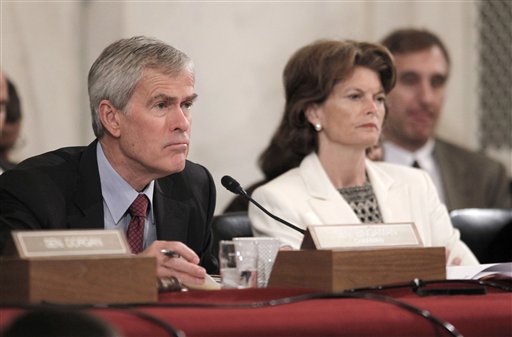Staff members at an agency that oversees offshore drilling accepted tickets to sports events, lunches and other gifts from oil and gas companies and used government computers to view pornography, according to an Interior Department report alleging a culture of cronyism between regulators and the industry.
In at least one case, an inspector for the Minerals Management Service admitted using crystal methamphetamine and said he might have been under the influence of the drug the next day at work, according to the report by the acting inspector general of the Interior Department.
The report cites a variety of violations of federal regulations and ethics rules at the agency’s Louisiana office. Previous inspector general investigations have focused on inappropriate behavior by the royalty-collection staff in the agency’s Denver office.
The report adds to the climate of frustration and criticism facing the Obama administration in the monthlong oil spill disaster in the Gulf of Mexico, although it covers actions before the spill. Millions of gallons of oil are gushing into the Gulf, endangering wildlife and the livelihoods of fishermen, as scrutiny intensifies on a lax regulatory climate.
The report began as a routine investigation, the acting inspector general, Mary Kendall, said in a cover letter to Interior Secretary Ken Salazar, whose department includes the agency.
“Unfortunately, given the events of April 20 of this year, this report had become anything but routine, and I feel compelled to release it now,” she wrote.
Her biggest concern is the ease with which minerals agency employees move between industry and government, Kendall said. While no specifics were included in the report, “we discovered that the individuals involved in the fraternizing and gift exchange — both government and industry — have often known one another since childhood,” Kendall said.
Their relationships took precedence over their jobs, Kendall said.
The report follows a 2007 investigation that revealed what then-Inspector General Earl Devaney called a “culture of ethical failure” and conflicts of interest at the minerals agency.
Salazar called the latest report “deeply disturbing” and said it highlights the need for changes he has proposed, including a plan to abolish the minerals agency and replace it with three new entities.
The report “is further evidence of the cozy relationship between some elements of MMS and the oil and gas industry,” Salazar said Tuesday. “I appreciate and fully support the inspector general’s strong work to root out the bad apples in MMS.”
Salazar said several employees cited in the report have resigned, were fired or were referred for prosecution. Actions may be taken against others as warranted, he said.
Salazar said he has asked Kendall to expand her investigation to look into agency actions since he took office in January 2009.
BP said Tuesday it is briefing federal authorities on the first results of its internal investigation into the accident that started with an oil rig explosion April 20, killing 11, and has turned into an environmental disaster.
The oil company said it is focusing on the blowout preventer — a massive piece of machinery that sits atop the well head and is supposed to act as a safety device of last resort — as well as the cementing and casing of the well head.
White House energy adviser Carol Browner said that BP is complying with the government’s request to use less of a toxic dispersant in fighting the spill, but alternative dispersants aren’t readily available.
Salazar last week proposed eliminating the Minerals Management Service and replacing it with two bureaus and a revenue collection office. The name Minerals Management Service would no longer exist.
Members of Congress and President Barack Obama have criticized what they call the cozy relationship between regulators and oil companies and have vowed to reform MMS, which both regulates the industry and collects billions in royalties from it.


